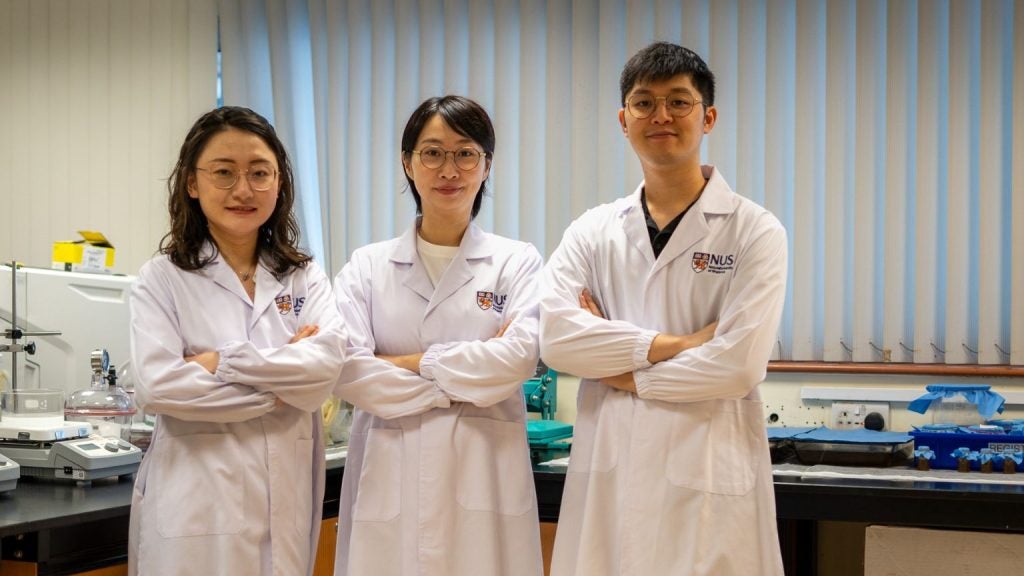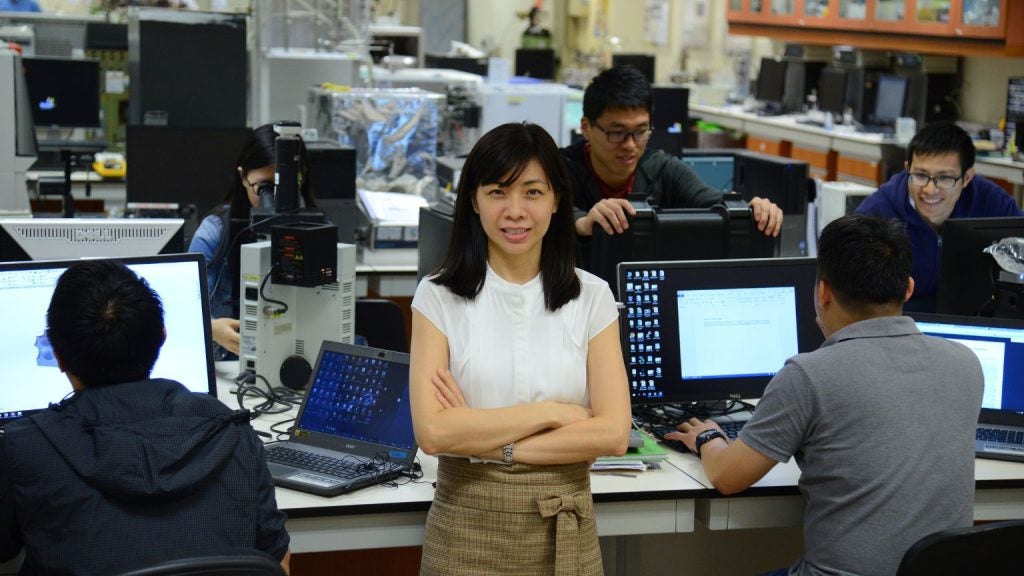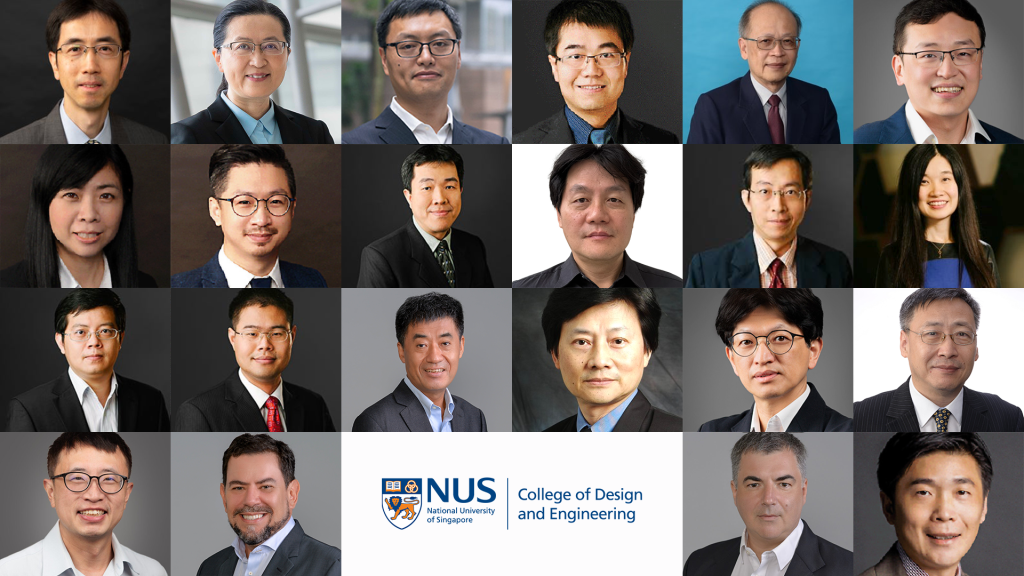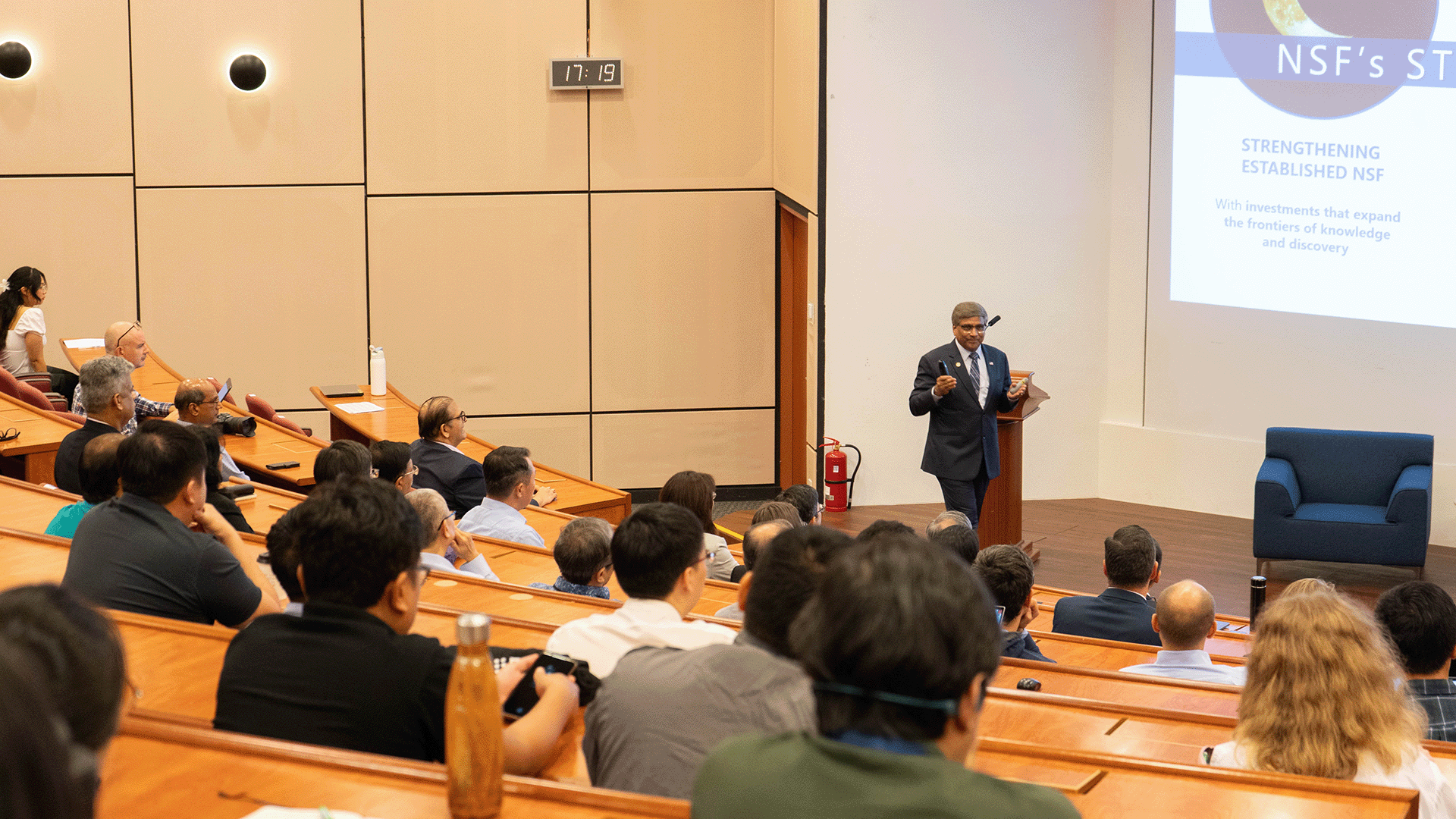
Scientists must learn to communicate their ideas “succinctly and convincingly,” otherwise even the most revolutionary ideas and innovations can fail. This was some of the concluding advice from the Honourable Dr Sethuraman Panchanathan, Director of the US National Science Foundation (NSF), wrapping up a recent guest lecture at CDE.
Speaking to an audience of faculty, students, and other research professionals, he warned that the most brilliant ideas can falter without clear and effective communication, which could often be “the bridge between an innovative idea and its acceptance”.
Whether it is explaining a proposal to a funding agency, inspiring collaboration across disciplines, or sharing discoveries with the broader public, how a researcher communicates can determine the success of their work, Dr Panchanathan said. “I have found amazing scientists who can’t communicate their ideas either succinctly or convincingly,” he told the audience.
(Hosted by NUSCast)
Dr Panchanathan, who leads the US$9.5 billion-independent federal agency, also emphasised the importance of resilience, curiosity, and persistence to achieve scientific success. Sharing his personal experiences, he said, “I have had more proposals rejected than proposals accepted... But I have to tell you that those rejections made me a better person, a better researcher, a better investigator.”
He encouraged young researchers to embrace failure as a natural and valuable part of the scientific process. “If you really want to make progress, you have to have the willingness to accept failure. Without failure, there is no success,” he said.
He also urged researchers to maintain a multidisciplinary approach, combining curiosity with collaboration. “The world is no more about one discipline – as important as your discipline is. It's about how do you not just respect other disciplines, but be willing to partner with other disciplines to solve challenges.”
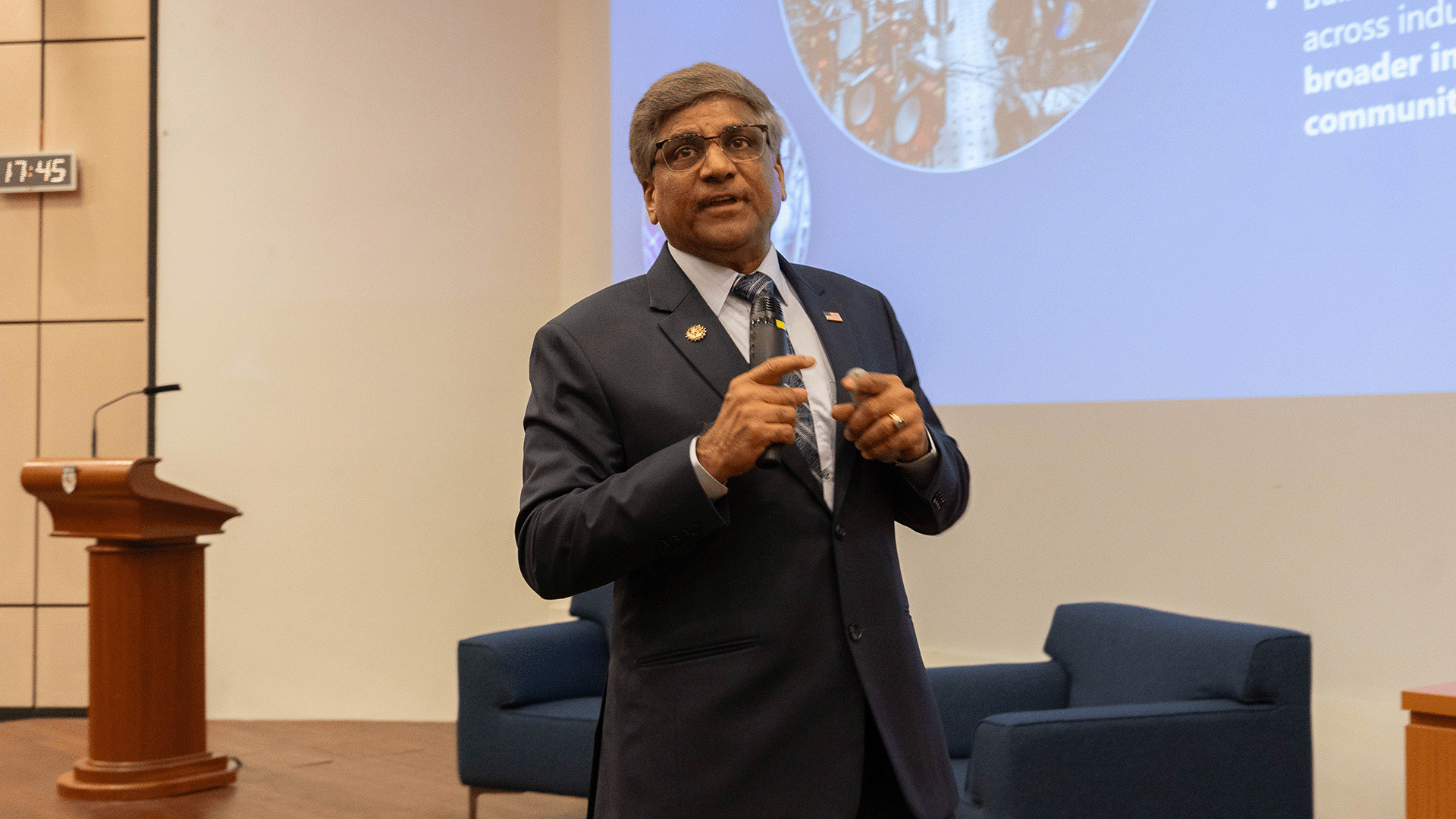
With his background as a computer scientist and engineer, Dr Panchanathan was appointed to lead the NSF in 2019. The agency is the only government body that supports science and engineering in all 50 states and US territories and fulfils its mission primarily by making grants.
In his lecture, titled Innovation Anywhere, Opportunities Everywhere: Accelerating the Frontiers of Science and Technology, organised in collaboration with Singapore’s National Research Foundation and held on November 19, Dr Panchanathan outlined the agency’s aim of democratising opportunities for innovation.
“Talent and ideas are everywhere, but opportunities are not,” he said. The NSF’s initiatives aim to bridge this gap by funding diverse research projects and fostering inclusive ecosystems, Dr Panchanathan said.
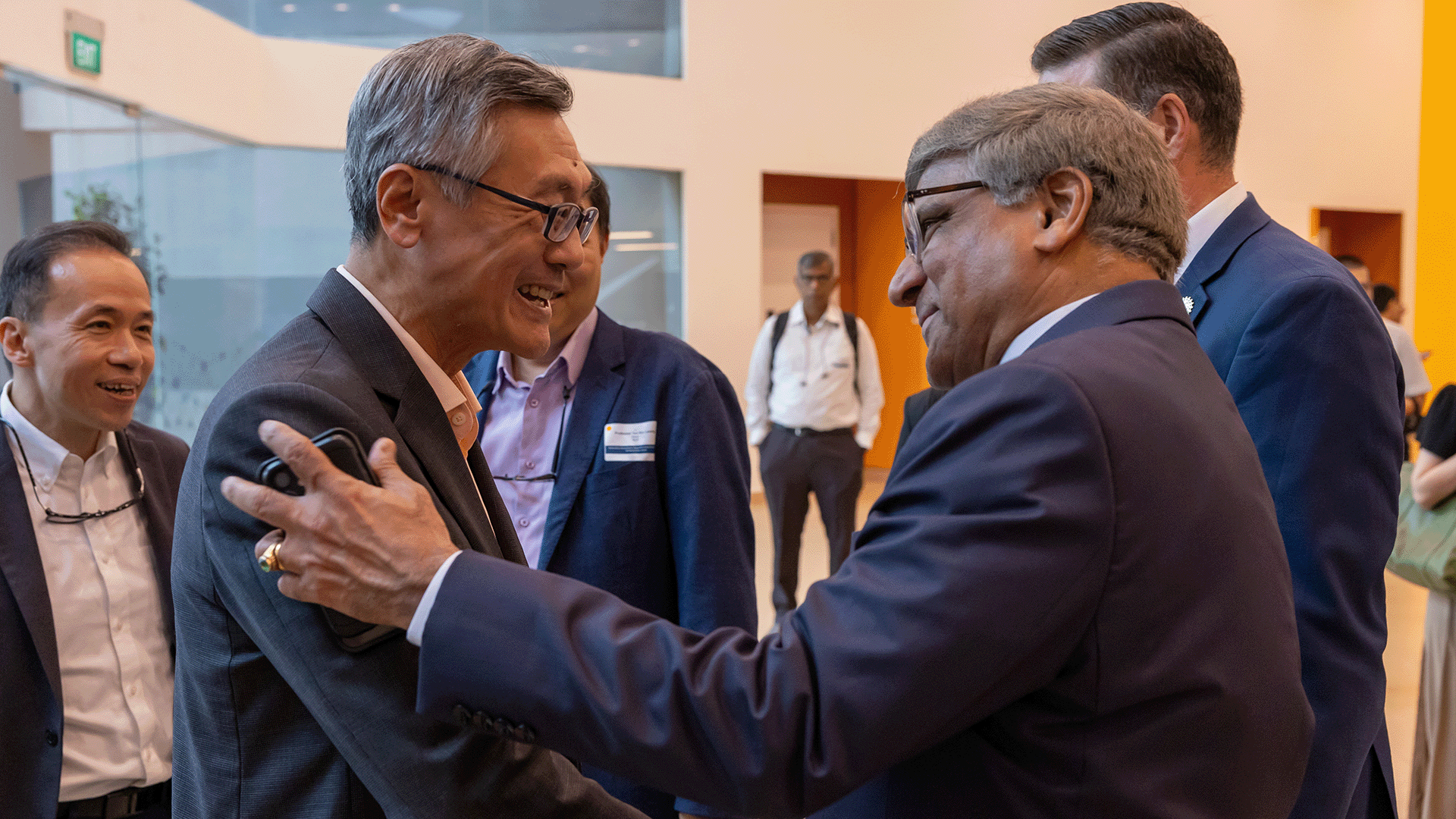
Highlighting the scale of NSF’s impact, he noted that its support has contributed to 268 Nobel Prizes and transformative advances in fields such as artificial intelligence and quantum computing. The agency’s dual focus on curiosity-driven discovery and solutions-focused innovation ensures that basic research leads to societal benefits.
He pointed in particular to one striking example of the impact of NSF funding from the mid-1990s. “Two graduate students, Larry Page and Sergey Brin, were supported by the NSF Graduate Research Fellow Program,” he said. “They wrote a proposal to NSF in 1994 for a digital libraries project. NSF funded that, and five years later, in their final report, they said they founded a company called Google — and now that's just a trillion-dollar history.”
Speaking following a tour of research sites and facilities on the NUS campus, describing their work as “mind-boggling,” Dr Panchanathan stressed the importance of global partnerships in tackling shared challenges like climate change and pandemic resilience. He pointed to the NSF’s Global Centres programme and expressed optimism about deepening collaborations with researchers and institutions in Singapore.
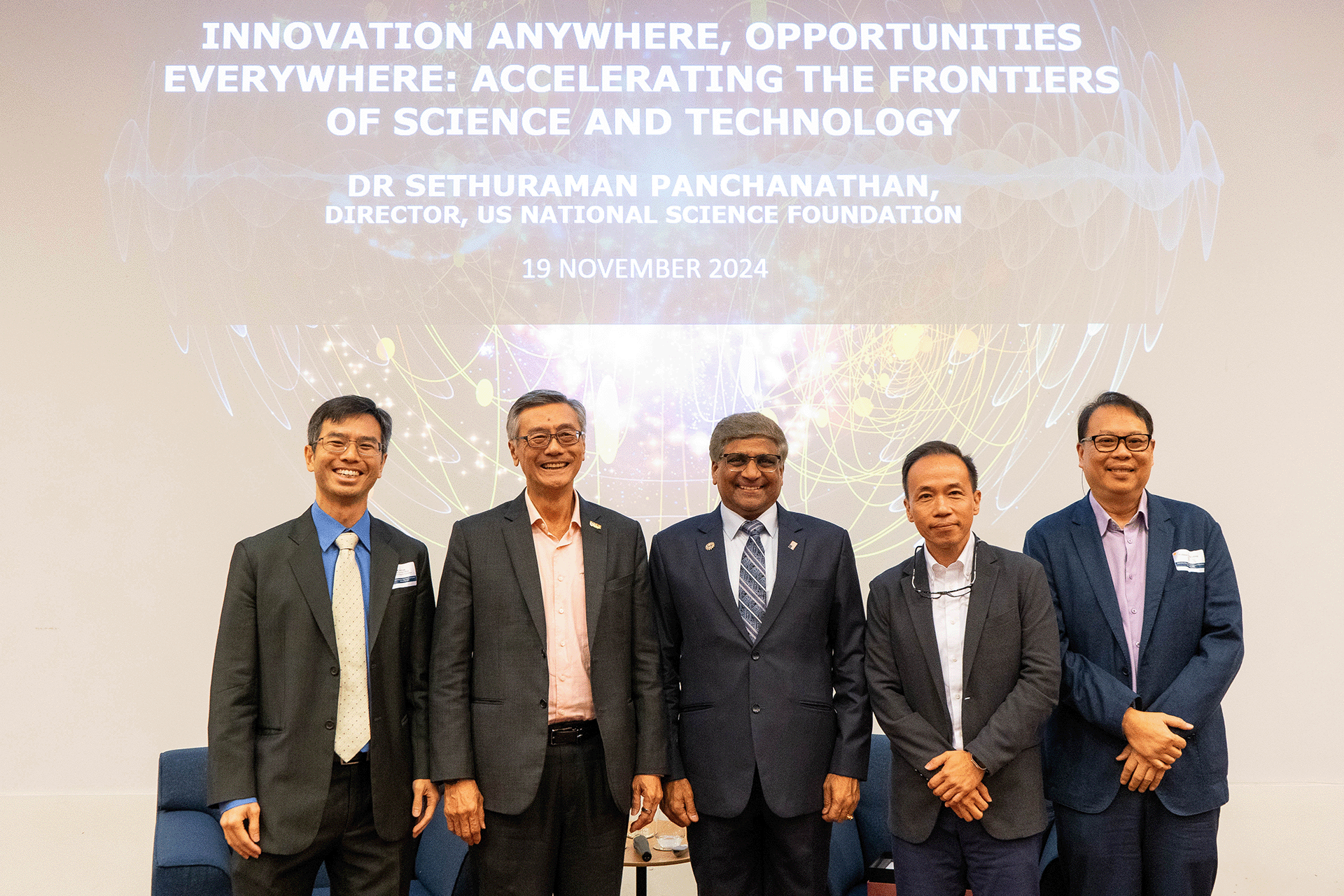
He also underscored the agency’s role in connecting academia, industry, and government, through which he said the NSF aims to accelerate the creation of sustainable innovation ecosystems.
The event concluded with a Q&A session moderated by Mr John Lim, CEO of the National Research Foundation, during which Dr Panchanathan discussed topics including research funding, infrastructure challenges, and fostering entrepreneurship among scientists. In response to a question on motivating risk-taking in research, he explained that NSF empowers its programme officers to fund high-risk, high-reward projects, ensuring bold ideas receive support.
In his parting advice, he urged young researchers to persevere, believe in their potential and “never give up.”
“Never give up the can-do spirit,” he said. “It all starts with curiosity. Curiosity leads to creativity. Creativity with courage is very important… You can't let anything let you down.”



